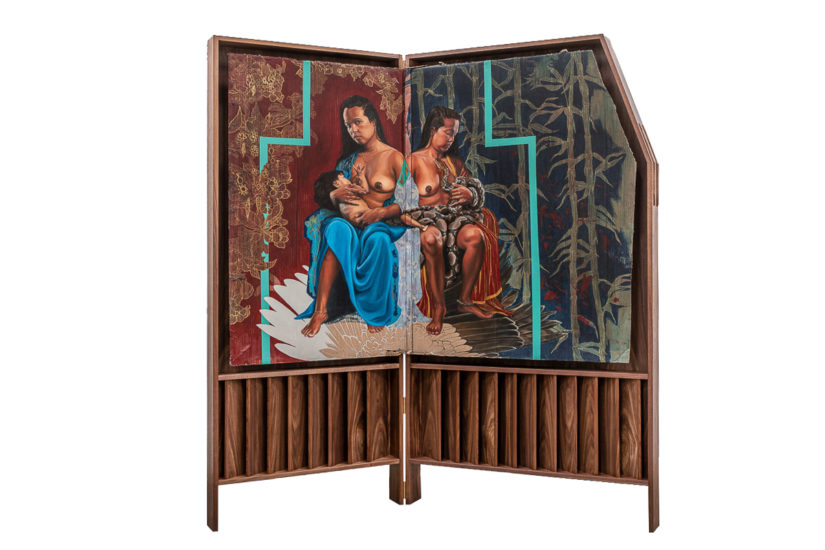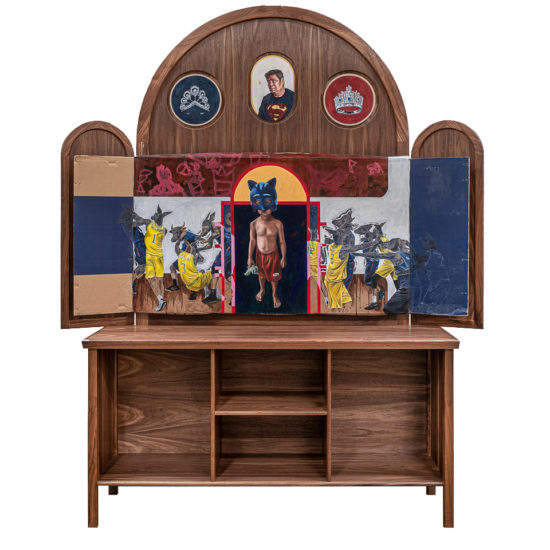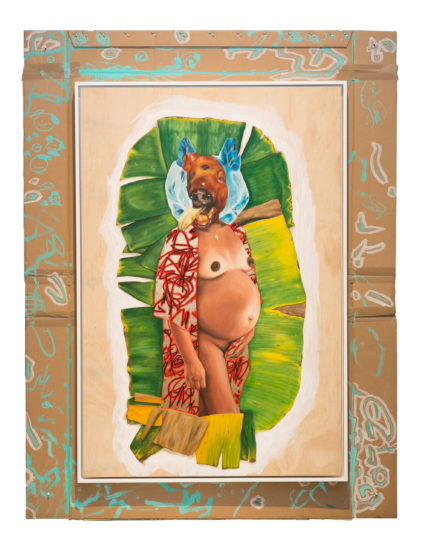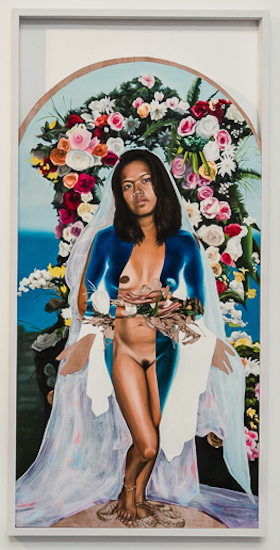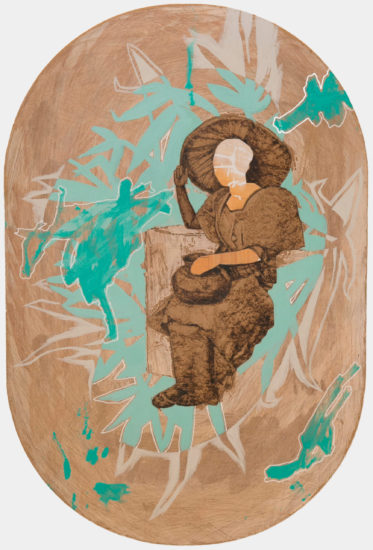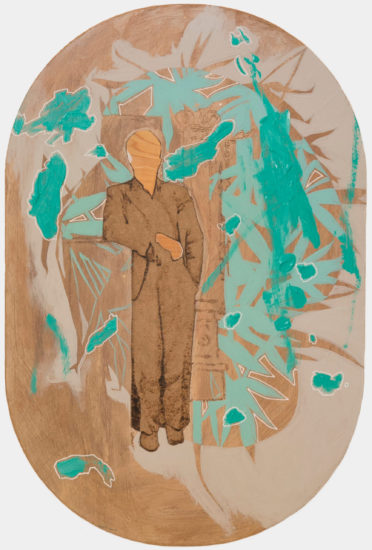Yavuz Gallery Sydney is proud to present Australian artist Marikit Santiago in her debut exhibition with the gallery, My Father’s Son.
Santiago is known for her richly-layered works that interrogate and critique the tensions that exist between her intersecting social, cultural and religious experiences. Through her practice, she considers the ways in which her Filipino heritage and Australian nationality impact her socially assigned roles as a woman and mother, and how these are framed within the context of being raised within the Catholic faith.
“This new body of work is driven by my personal history, as a daughter of a man with five sisters, who longed for sons to carry on his name and ended up with two daughters. Although my father’s yearning for a son was mostly in jest, I always aimed to fill that role of a son for my father, and pursued more masculine interests and attitudes. This exhibition considers this notion of longing; a desire to be something that you simply are not, and for inclusion where you don’t belong.”
– Marikit Santiago, 2020
My Father’s Son articulates the pressures that come from these roles that are defined for us and assigned to us. Roles that inescapably shape our lives, even when we reject them. Santiago explores these pressures through the use of layered religious symbology, self-portraiture, the depiction of prominent public figures, and playful collaborations with her children’s drawings.
Her saturated colour palette, while visually sumptuous, has deeper ties to Catholic iconography, especially the colours blue, green and red. Navy and royal blues are references to the Virgin Mary, innocence and birth. Green symbolises bountifulness, hope and the victory of life over death. Crimson red is the colour of blood, of martyrdom, and of Christ. Set against this traditional backdrop that directly refers to the artist’s Filipino background and Western Art History canon, Santiago’s characters are positioned centre stage. Infamous former First Lady of the Philippines, Imelda Marcos makes an appearance; she is the portrait of fierce femininity, vanity, capitalism and excess. Previous Winners of Miss World Philippines are also invoked by Santiago; held up as an ideal of beauty standards, they have been frequently criticised for glorifying Caucasian features as the ‘gold-standard’ of beauty. As a counterpoint to these highly feminised figures, two teams of basketball players signify what is considered to be masculine success, comprising physical prowess, power, height and wealth.
Finally, Santiago’s self-portraits are the linchpins of this exhibition. Strong, often maternal and always defiant, they are punctuated by the unsteady yet confident mark-making of her three children. These collaborations are a reminder that Santiago’s interrogation of these gendered norms is the legacy she is forging for her children. Through this fusion of layered elements, Santiago forms a rich tapestry that is a simultaneous acceptance and rejection of her interweaving ethnic, cultural and social identities.
Born in 1985, Santiago currently lives and works in Western Sydney. Her selected exhibitions include: Bayanihan Philippine Art Project, Art Gallery New South Wales, Blacktown Arts Centre, Campbelltown Arts Centre, Mosman Art Gallery and Peacock Gallery, Australia (2017); New Sacred, Mosman Art Gallery, Australia (2018) ; I LOVE YOU MELISSA, The Lock Up, Australia (2018); Mahal, Firstdraft (2018); Everyday Madonna, Casula Powerhouse Arts Centre (2019); and Sports Show, Pari, Parramatta Artist Run Initiative, Australia (2020). In 2021, she will present a solo exhibition, For Us Sinners at 4A Centre for Contemporary Asian Art, Australia.
Santiago is the winner of the 2020 edition of the Sir John Sulman Prize, and has received the Sam Whiteley Commendation Award, Churchie Emerging Art Prize, Institute of Modern Art, Australia (2018); and was a finalist for the Archibald Prize (2016), and the Sulman Prize, Art Gallery of New South Wales, Australia (2019). She is the guest judge of the 2020 edition of the Young Archie Award.
